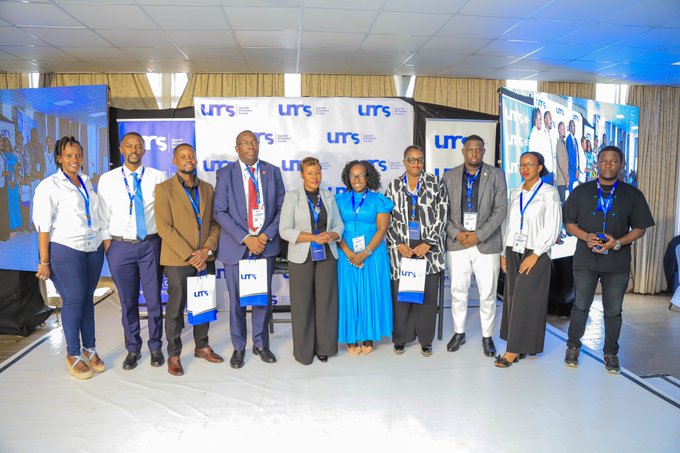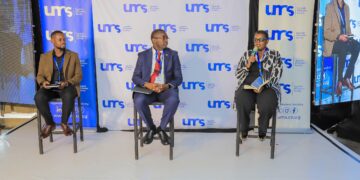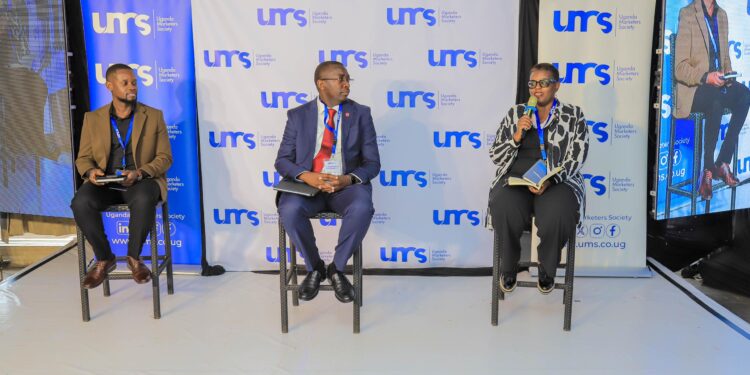Kampala, Uganda – Marketing/advertising professionals in Uganda have called for increased reliance on research, creativity, and collaboration to enhance the effectiveness of marketing campaigns in the country.
Speaking at the Annual Marketers’ Fireplace organised by Uganda Marketers Society (UMS), Nanzala Mwaura, Chief Growth Officer at IPSOS — a global leader in market research — highlighted the need to address gaps in audience data and urged stakeholders to adopt innovative, data-driven strategies in a rapidly evolving media landscape.
“Decisions must hinge on return on investment (ROI). Without a measurable impact, campaign budgets are wasted,” she said, emphasising the critical role of pre- and post-campaign research in achieving marketing success.
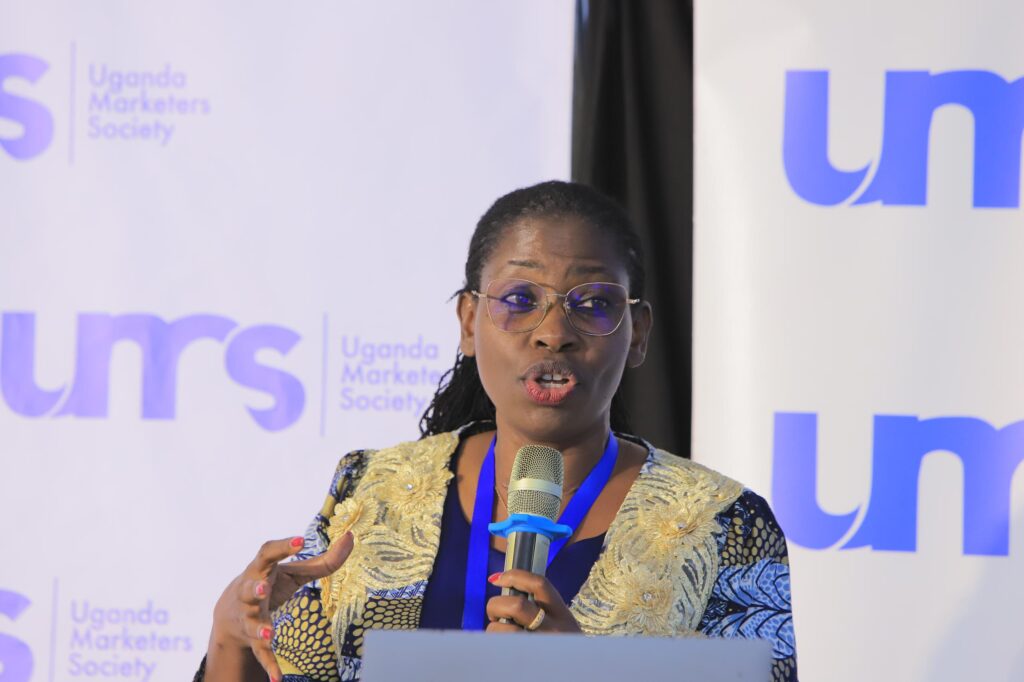
Media Landscape in Transition
Held at Skyz Hotel in Naguru on Friday, the event spotlighted significant changes in Uganda’s media consumption patterns, driven by COVID-19, which increased internet penetration and reshaped how Ugandans interact with traditional and digital media.
The country’s last major audience survey, conducted in 2019, no longer reflects current trends, creating challenges for advertisers trying to target audiences effectively.
“In a fragmented media environment with many regional outlets, we lack updated, comprehensive data. COVID-19 brought a paradigm shift. Work-from-home culture and digital engagement have altered how audiences interact with media, yet our data has not kept pace,” noted Nanzala in a compelling presentation to marketing professionals.
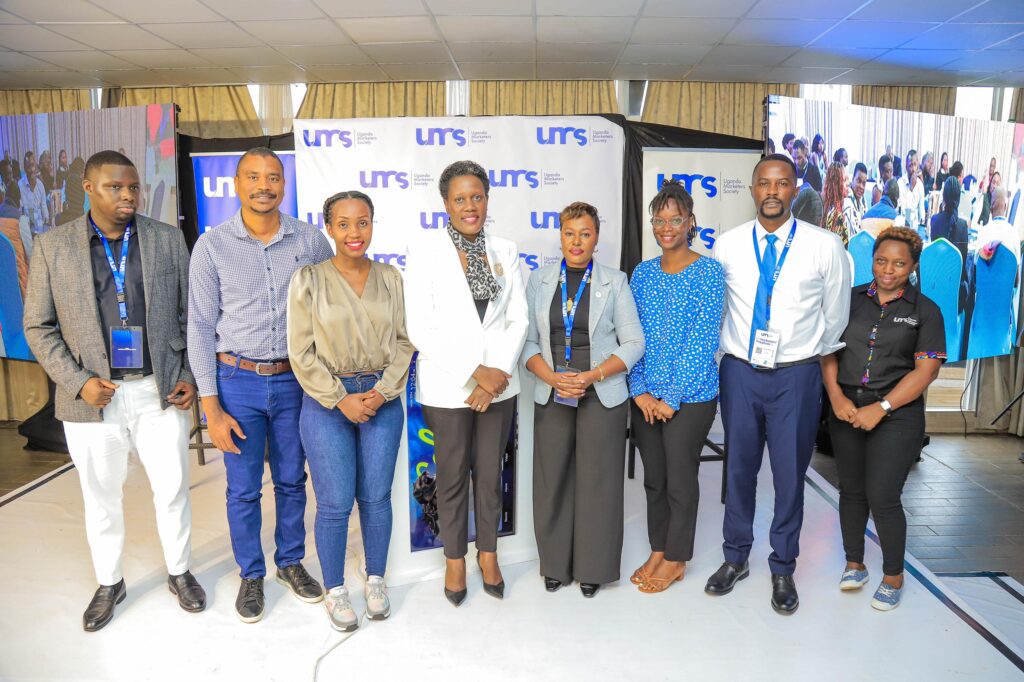
Creativity Meets Empathy
Nanzala also stressed the role of creativity in capturing consumer attention. She noted that campaigns that incorporate empathy and reflect consumer needs and aspirations are the most successful.
“Creativity plus empathy can increase campaign effectiveness by 20%. It’s not just about flashy ads; it’s about understanding the consumer,” she explained, citing several case studies of successful campaigns.
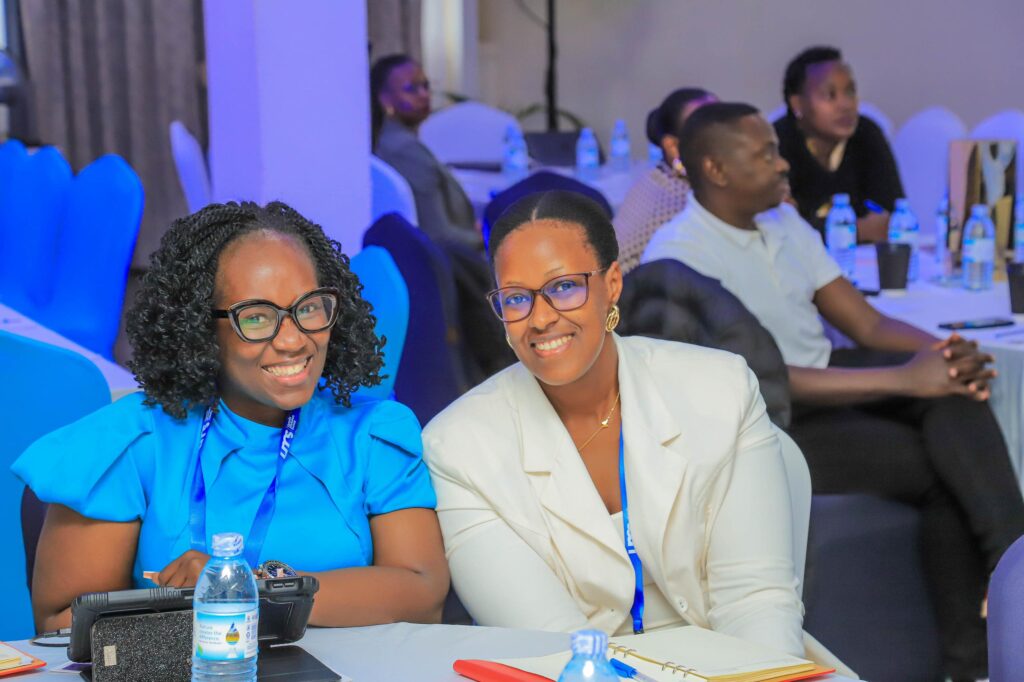
“Creativity is not just about inspiration—it’s 99% effort and collaboration. Empathy, differentiation, and clear messaging are the pillars of successful campaigns,” stated Nanzala, adding: “Analysing the data after your campaign is just as important as planning it. Without understanding your results, you’re flying blind.”
She called upon industry leaders urged stakeholders to fund and support research initiatives to improve the quality of advertising in Uganda. She further stressed the importance of post-campaign evaluations, which analyse metrics such as reach, frequency, and share of voice.
Innovation, Empowerment, and Customer-Centric Strategies
In her keynote speech, Joanita Mukasa Menya, the Managing Director of Vivo Energy Uganda, tipped marketers on how to elevate their place in the marketplace and align with finance for bigger budgets.
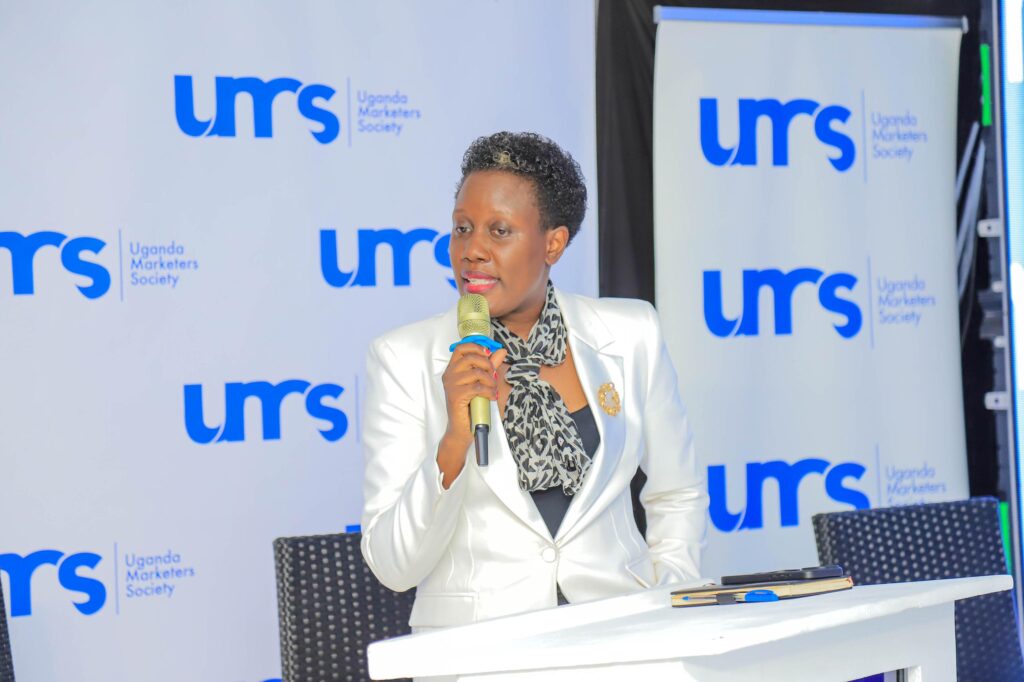
“Your titles mean nothing if you can’t create value out of all that knowledge you have amassed. Yes, you have more than one degree but so what? Me with one degree is here at the front teaching,” she noted.
Catherine W. Ndungu, the Director of Marketing and Innovation at Uganda Breweries Limited, highlighted how marketers can sharpen their competencies and stay ahead of the curve.
“Know what to say and when you say it. Life is no longer about traditional Marketing, but storytelling. The WHY and not the WHAT,” she noted.
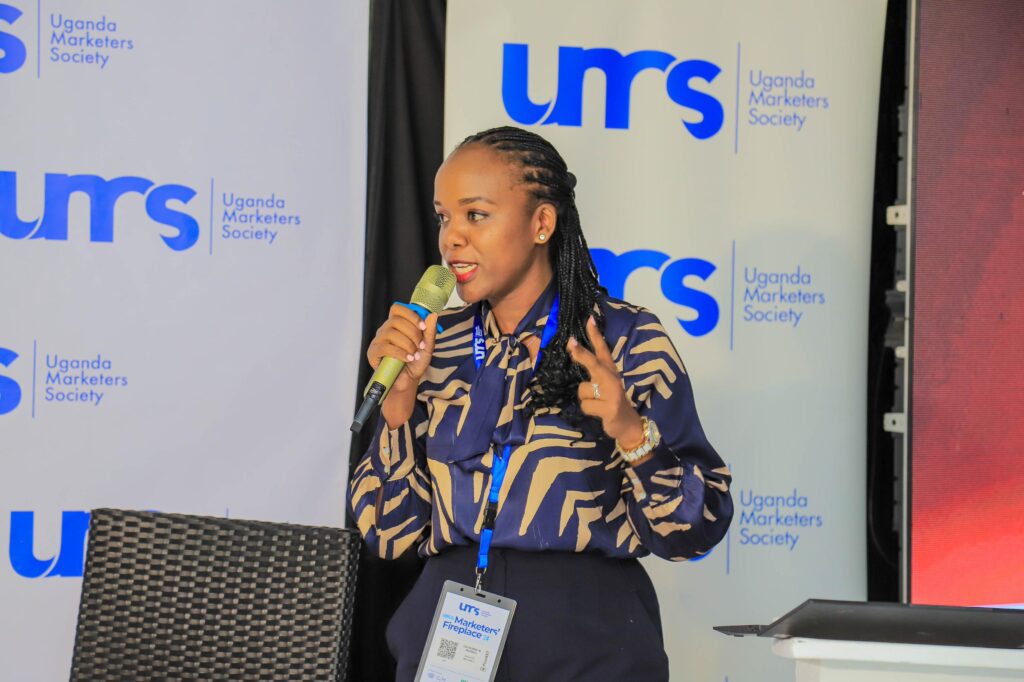
“Why did people buy papers back then? They were entertaining. They had puzzles, music lyrics, plots, TV schedules and premium gossip nobody knew. And yes, print is still relevant today but are you going to wait a day, when you can get all this online?” she wondered.
According to her, continuous learning to know what’s happening, why and where is important as well as adaptability and agility. She urged marketers to develop human-centric strategies.
“Marketing is evolving faster than a cheetah. 15 years ago, we didn’t know about TikTok. Marketing is an evolution which never stops. The future of marketing isn’t something you wait for but something you create,” she added.
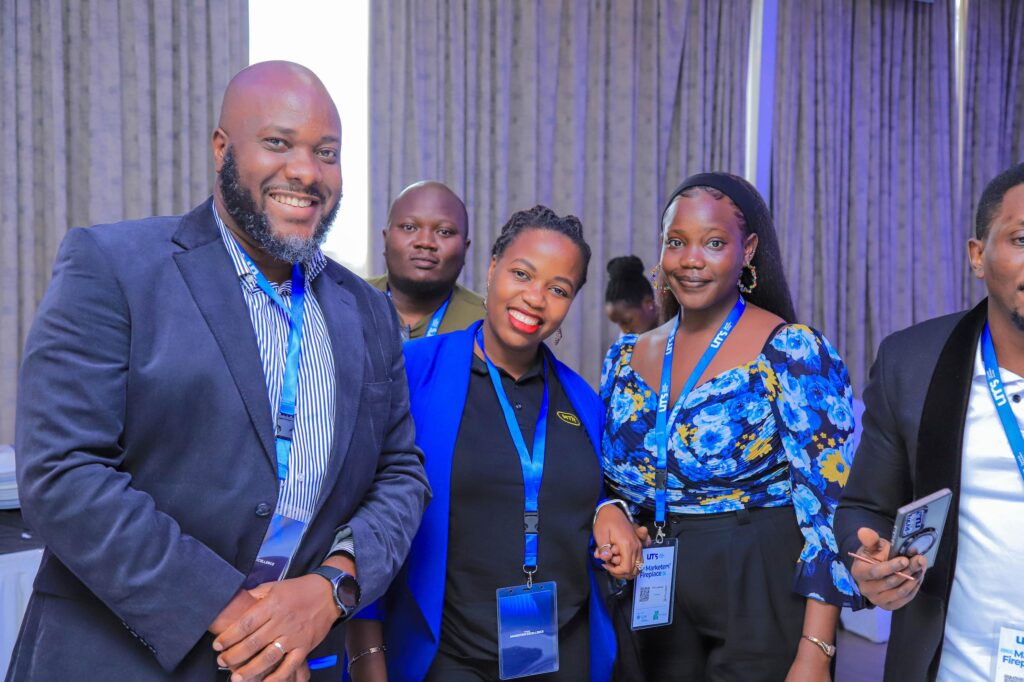
Charity Winnie Kamusiime, President of Uganda Marketers Society and Marketing Manager DFCU bank, praised the commitment of participants to empowering the next generation in marketing, noting the shared mission of building a robust industry.
“We are together in the journey of perfecting our craft and advancing marketing as a discipline,” she said. “Our role is to empower communities, foster personal growth, and represent brands with integrity.”
In her key takeaways, Kamusiime highlighted the “invest to harvest” approach, understanding and serving customers, embracing technology and trends and maintaining integrity in marketing.
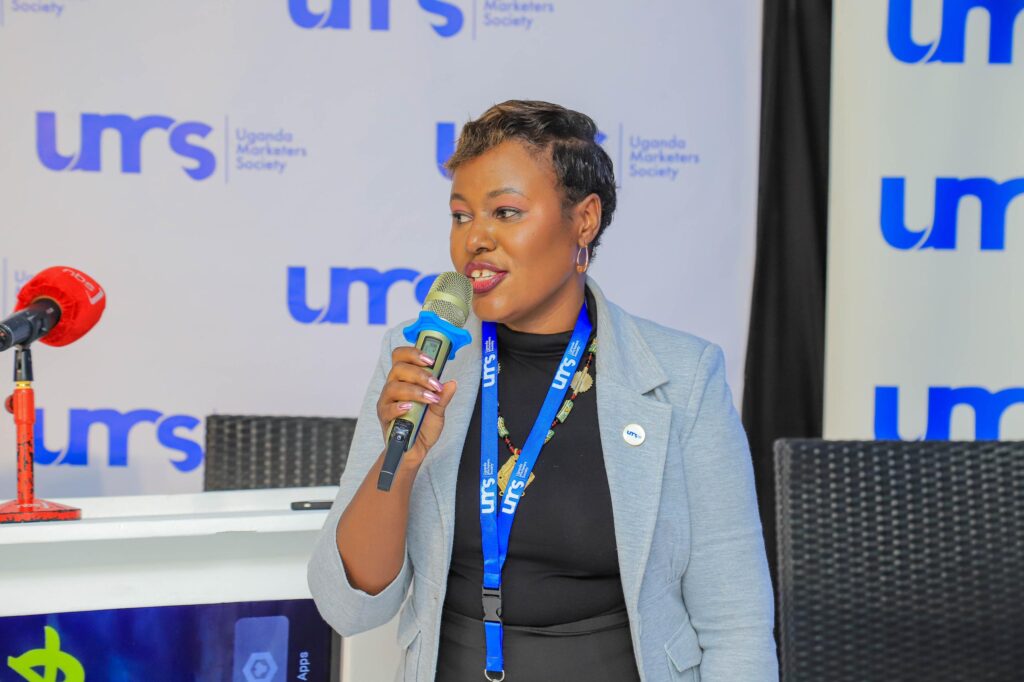
ACCA Conrad Mbaziira, a Financial Controller at the National Social Security Fund (NSSF), shared how as accountants, they are now required to report on community impact and brand perception, not just numbers.
“This validates what we have been saying all along, marketing impact goes beyond immediate sales figures. We also consider sales to marketing costs ratio, opportunity cost analysis and competitor spending analysis.”

CPA Michael Segwaya, the Executive Director of Absa Bank Uganda, said the critical question revolves around the tangible and intangible returns generated from each marketing investment.
“Whether these returns manifest as enhanced brand equity, increased market visibility, improved trust, or ratings, they must translate into either revenue growth/ cost optimisation.”
He said this provides a clear framework for evaluating marketing initiatives, regardless of complexity. “The real story isn’t marketing vs finance, it’s about both teams working hand in hand to build something bigger than ourselves.”

He went on: “Yes, finance needs to understand why we get excited about brand campaigns and customer engagement. But equally, marketers need to step up our game with numbers and financial literacy.”
According to the experts, marketing and finance are partners to drive value because marketing has long-term and short-term. It’s no longer about how much but about communicating the value.
